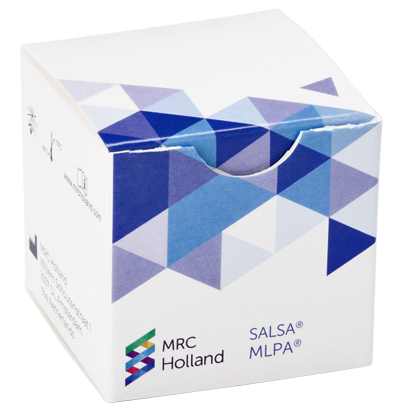P008 PMS2

SALSA® MLPA® Probemix P008 PMS2 detects copy number variations in the PMS2 gene and/or its pseudogene PMS2CL.

Contents: 47 MLPA probes, including 34 for PMS2 and/or its pseudogene PMS2CL: 19 PMS2-specific probes for exons 1 – 11, 5 probes for exons 12 – 15 of PMS2 and the homologous region in PMS2CL, and 10 SNP probes (5 SNP probe pairs) for allelic variants located in the exon 11 – 15 region of PMS2 or the homologous region in PMS2CL.

Tissue: genomic DNA isolated from human peripheral whole blood.

Application: Lynch syndrome (LS), and constitutional mismatch repair deficiency (CMMRD) syndrome.

IVDD certified and registered for in vitro diagnostic (IVD) use in selected territories.

